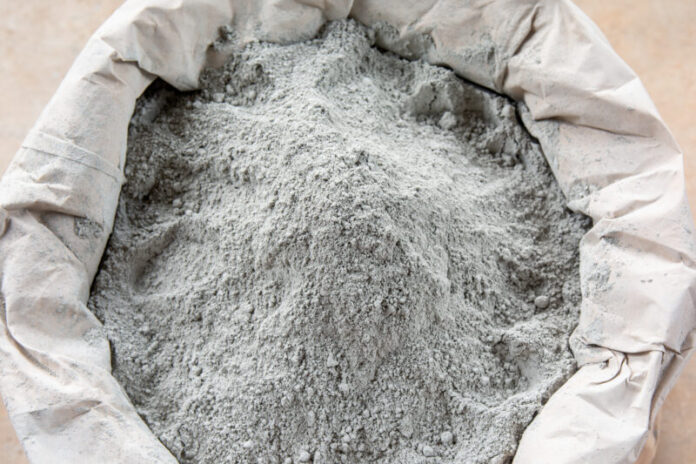-
Definitive anti-dumping duties are being imposed for five years by Philippine customs on imported Vietnamese cement types as they pose imminent threat of material injury to the domestic cement industry
-
Customs Memorandum Order No. 05-2023 implements DTI Department Administrative Order 23-01
-
The definitive anti-dumping duties will be imposed on imports of ordinary Portland cement type 1 and blended cement type 1P originating in Vietnam
The Bureau of Customs (BOC) is applying anti-dumping duties on imported Vietnamese cement for the next five years to avoid an “imminent threat” to the domestic cement industry.
Customs Memorandum Order No. 05-2023 implements Department of Trade and Industry (DTI) Department Administrative Order 23-01, dated February 14, 2023, which ordered such imposition. DAO 23-01 takes effect only upon the issuance of the relevant CMO by BOC.
RELATED READ: DTI imposes anti-dumping duties on Vietnam cement imports
The definitive anti-dumping duties apply to imports of ordinary Portland cement type 1 (AHTN 2017/2022 Subheading No. 2523.29.90) and blended cement type 1P (AHTN 2017/2022 Subheading No. 2523.90.00) originating in Vietnam, according to CMO 05-2023, dated March 9 and signed March 20 by Customs commissioner Bienvenido Rubio.
The anti-dumping duty rates vary per individual exporter/trader depending on the dumping margin it makes from the price per metric ton of its commodity that it exports to the Philippines.
For instance, producer-exporter Viet HP Import-Export and Investment Joint Stock Co. is imposed the highest US$8.33/mt, a 23.07% rate for ordinary Portland cement type, while it is taxed $8.20/mt, or 23.33%.
In contrast, Vicem Hai Phong Cement Co. Ltd. Has a anti-dumping duty of $0.99/mt or a 2.33% rate on it Portland cement.
The “all others’ rates,” meanwhile, applies to foreign exporters who did not make themselves known to the Tariff Commission (TC), did not cooperate sufficiently during the formal investigation, and new foreign exporters who have not exported the subject cement to the Philippines during the investigation period.
The “all others’ rate” is 23.07% of the export price for ordinary Portland cement and 23.33% of the export price for blended cement.
Governments impose an anti-dumping duty, a protectionist tariff, on foreign imports that it believes are priced below fair market value.
For exporters or producers in Vietnam who have not exported type 1 and type 1P cement to the Philippines from 2017 to 2021, their individual margins of dumping may be determined following a review pursuant to Republic Act No. 8752 or the Anti-Dumping Act of 1992.
Investigation on exporters determined to have a de minimis and/or negative dumping margin is now terminated. With the termination, no anti-dumping duty, even at 0% rate, will be imposed on their cement exports. The “all others’ rates” will likewise not be applied to them, so they are excluded from the scope of the DAO.
Cash bonds deposited/paid by exporters under DTI DAO 21-07 and BOC CMO 38-2021 will be returned immediately upon the effectivity of DAO 23-01. These orders implemented provisional anti-dumping duties on the importation of cement from Vietnam for four months.
DTI recommended in December 2022 through DAO 22-17 the imposition of safeguard duty after the TC, in its formal investigation, “established that the threat of material injury to the domestic cement industry is imminent in the near future from dumped imports from Viet Nam”.
As a result, DTI ordered that anti-dumping duties be imposed on imports of ordinary Portland cement type 1 and blended cement type 1P originating and exported from Vietnam for a period of five years.
The investigation stemmed from an application filed in April 2021 by CEMEX Holdings Philippines (Solid Cement Corp. and APO Cement Corp.), Holcim Philippines Inc., and Republic Cement and Building Materials Inc. alleging that Vietnam was dumping in the Philippines of Type 1 and Type 1P cement, causing material injury to the domestic cement industry.
DTI, acting under RA 8752, said in the same month that it had reviewed evidence provided by the local cement producers and “determined the existence of sufficient evidence to justify the initiation of an investigation.”
After the issuance of DTI DAO 21-17, which recommended the imposition of the safeguard duty, motions for reconsiderations were filed by certain exporters and importers.
The Tariff Commission (TC) reviewed the motions for reconsideration and said in a report on February 13, 2023 that “the arguments raised by the movants are mere rehash of previously submitted arguments” and reaffirmed its final determination/decision in its final report dated October 11, 2022.
TC’s final report on October 11, 2022, said that from 2019 to December 2020, the period of investigation (POI) to determine whether dumping existed, there were price differences between the normal values and export prices to the Philippines of ordinary Portland cement type 1 and blended cement type 1P originating in Vietnam.
Moreover, TC said the volume of imports of the two cement types at dumped prices is not negligible, as they accounted for 53% of total Philippine cement imports from July 2019 to December 2020.
TC noted that while the domestic cement industry was not materially injured by the dumped cement from Vietnam during 2017 to 2021, the “existence of threat of material injury to the domestic industry is imminent in the near future as indicated by the significant rate of increase of dumped imports into the Philippines capturing substantial market share; the presence of price undercutting, price depression and price suppression during the POI; the substantial available production capacities of Vietnam that can accommodate increasing exports to the Philippines, its top export market; and the openness of the Philippine cement market.”
DAO 23-01 supersedes DAO 22-17. – Roumina Pablo





